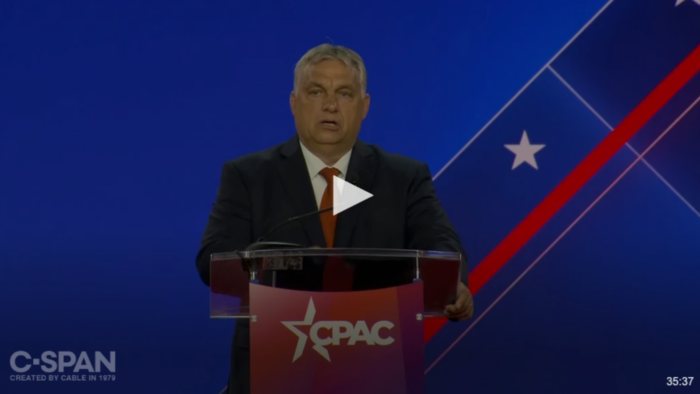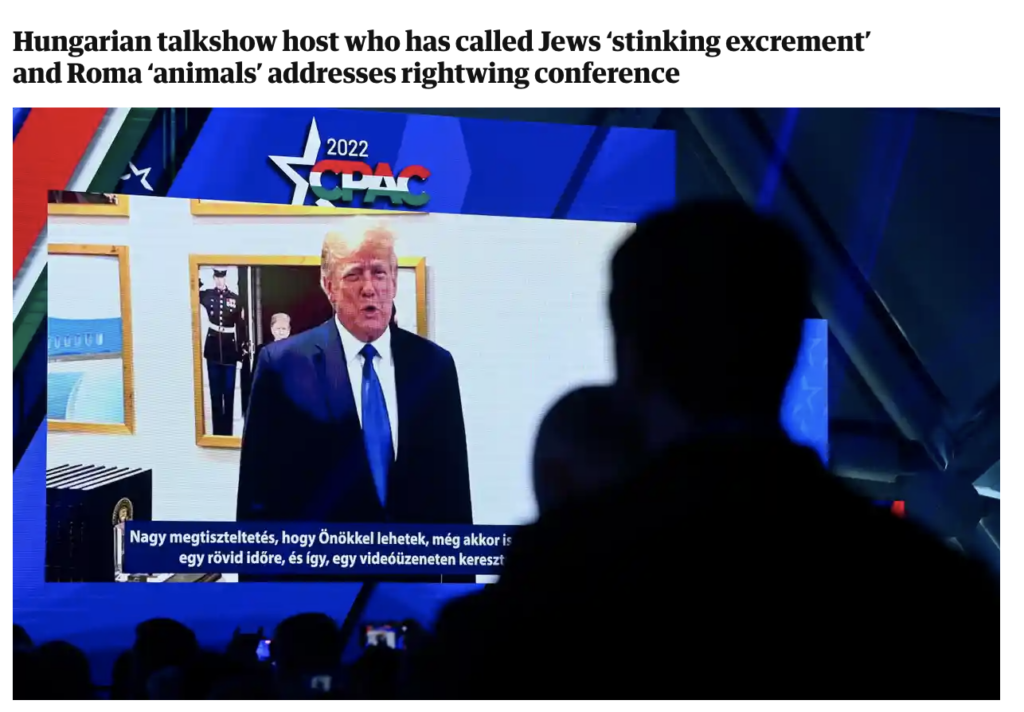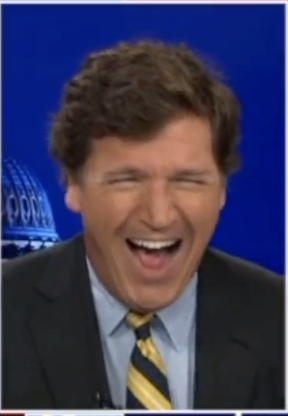US media is reporting on the reelection of Hungarian Prime Minister Viktor Orban, described as “the Russian President’s closest friend inside the EU and NATO.” According to a Time Magazine report:
April 3, 2022 His forces may be bogged down in Ukraine, but Vladimir Putin was handed a boost Sunday. Hungarian Prime Minister Viktor Orban—the Russian President’s closest friend inside the E. U. and NATO—is on track to win a fourth successive term, with more than 80% of votes counted. Vote counting began after polls closed at 7 p. m. local time with Orban, 58, set to win a strong majority of the total 199 parliamentary seats. “We’ve won a victory so big that you can see it from the moon, but you can certainly see it from Brussels,” Orban told his supporters Sunday evening, nodding to tensions with E. U. leaders.
Read the rest here
The Time report goes on to describe how under Orban’s leadership, the Hungarian government has become strongly pro-Russian:
Despite a population that is adamantly pro‑E.U., Hungary’s government under Orban has stre ongly leaned toward the Kremlin. Whereas Orban’s international messaging emphasized Hungary’s neutrality, domestic state media has been parroting Putin’s justification for the invasion. Orban has refused to denounce Putin by name, but instead only opposes “war” in Ukraine. He has also refused to allow NATO weapons to be transported through his territory to Ukraine. Although Orban didn’t oppose E.U. sanctions on Russian kleptocrats or institutions, he has vowed to block any targeting of Russian oil or gas.
The Time report further details how Russia’s Federal Security Service (FSB) has compromised Hungary’s Foreign Ministry computer network and internal correspondence, seemingly without public complaint by Hungarian authorities:
Orban is also a significant security risk for allies. According to an investigation by Direkt36, a Budapest-based non-profit investigative journalism center, Russia’s Federal Security Service (FSB) had completely compromised Hungary’s Foreign Ministry computer network and internal correspondence by mid-2021, and the breach remained active during recent E.U. and NATO crisis summits. Foreign Minister Péter Szijjártó has not publicly complained about the cyberattack, and on Dec. 3 he received the Order of Friendship medal—Russia’s highest state honor for a foreigner—in Moscow on the orders of Putin himself.
The Global Influence Operations Report (GIOR) recently published the first in a series of reports on global influence operations, titled “The National Conservatism Alliance: An Opportunity for Russian Influence?” The report is centered on a new and developing alliance between US conservatives and European nationalists, a potential means for Russia to exert covert influence in Europe and the US, using Hungary as a platform. The GIOR report details the role that Viktor Orban and the Hungarian government have been playing in this alliance.
Download the full report here.









COMMENTS
Comments are closed here.